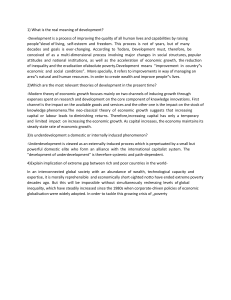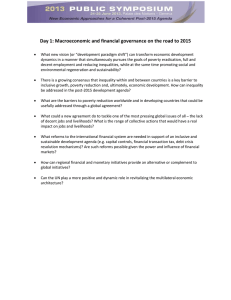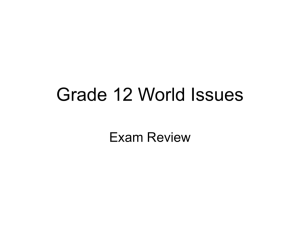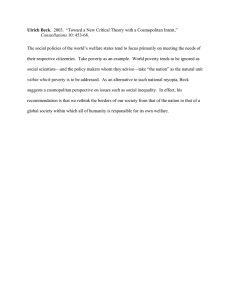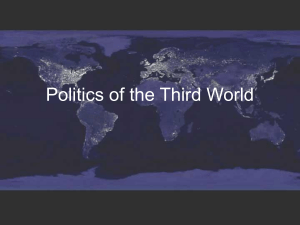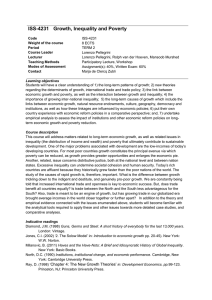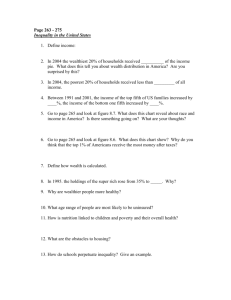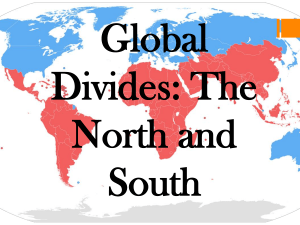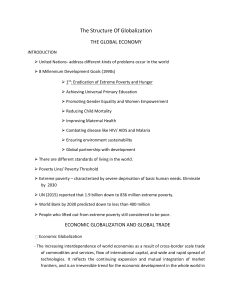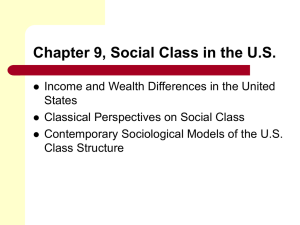Globalization:
advertisement
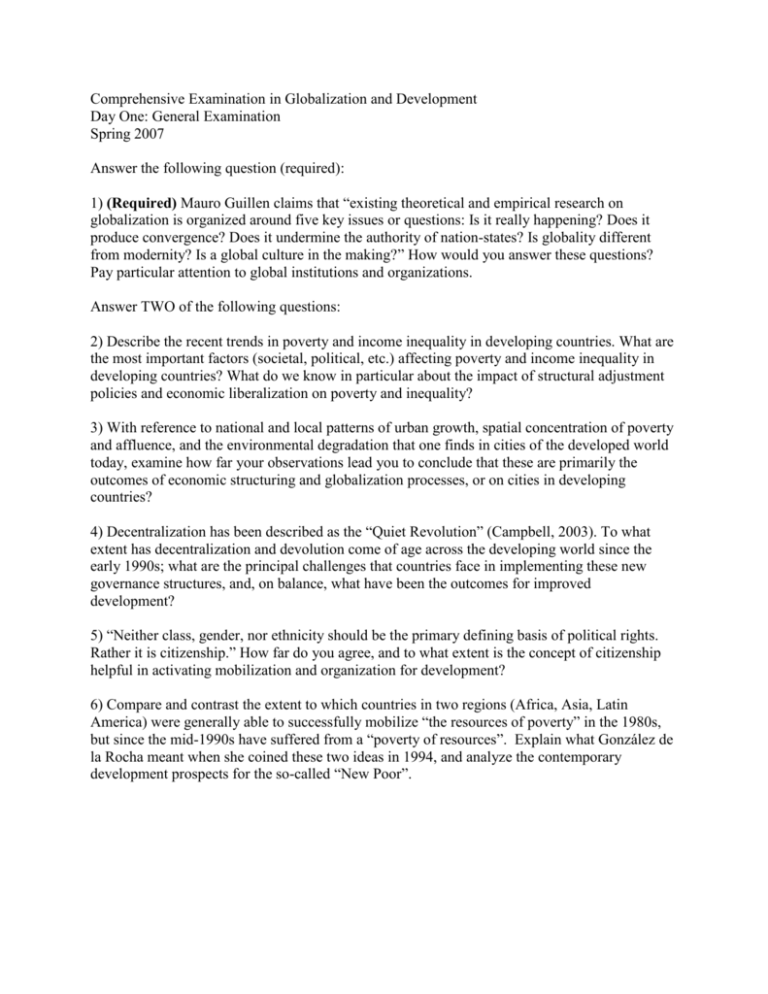
Comprehensive Examination in Globalization and Development Day One: General Examination Spring 2007 Answer the following question (required): 1) (Required) Mauro Guillen claims that “existing theoretical and empirical research on globalization is organized around five key issues or questions: Is it really happening? Does it produce convergence? Does it undermine the authority of nation-states? Is globality different from modernity? Is a global culture in the making?” How would you answer these questions? Pay particular attention to global institutions and organizations. Answer TWO of the following questions: 2) Describe the recent trends in poverty and income inequality in developing countries. What are the most important factors (societal, political, etc.) affecting poverty and income inequality in developing countries? What do we know in particular about the impact of structural adjustment policies and economic liberalization on poverty and inequality? 3) With reference to national and local patterns of urban growth, spatial concentration of poverty and affluence, and the environmental degradation that one finds in cities of the developed world today, examine how far your observations lead you to conclude that these are primarily the outcomes of economic structuring and globalization processes, or on cities in developing countries? 4) Decentralization has been described as the “Quiet Revolution” (Campbell, 2003). To what extent has decentralization and devolution come of age across the developing world since the early 1990s; what are the principal challenges that countries face in implementing these new governance structures, and, on balance, what have been the outcomes for improved development? 5) “Neither class, gender, nor ethnicity should be the primary defining basis of political rights. Rather it is citizenship.” How far do you agree, and to what extent is the concept of citizenship helpful in activating mobilization and organization for development? 6) Compare and contrast the extent to which countries in two regions (Africa, Asia, Latin America) were generally able to successfully mobilize “the resources of poverty” in the 1980s, but since the mid-1990s have suffered from a “poverty of resources”. Explain what González de la Rocha meant when she coined these two ideas in 1994, and analyze the contemporary development prospects for the so-called “New Poor”.
